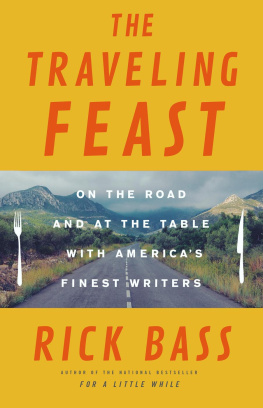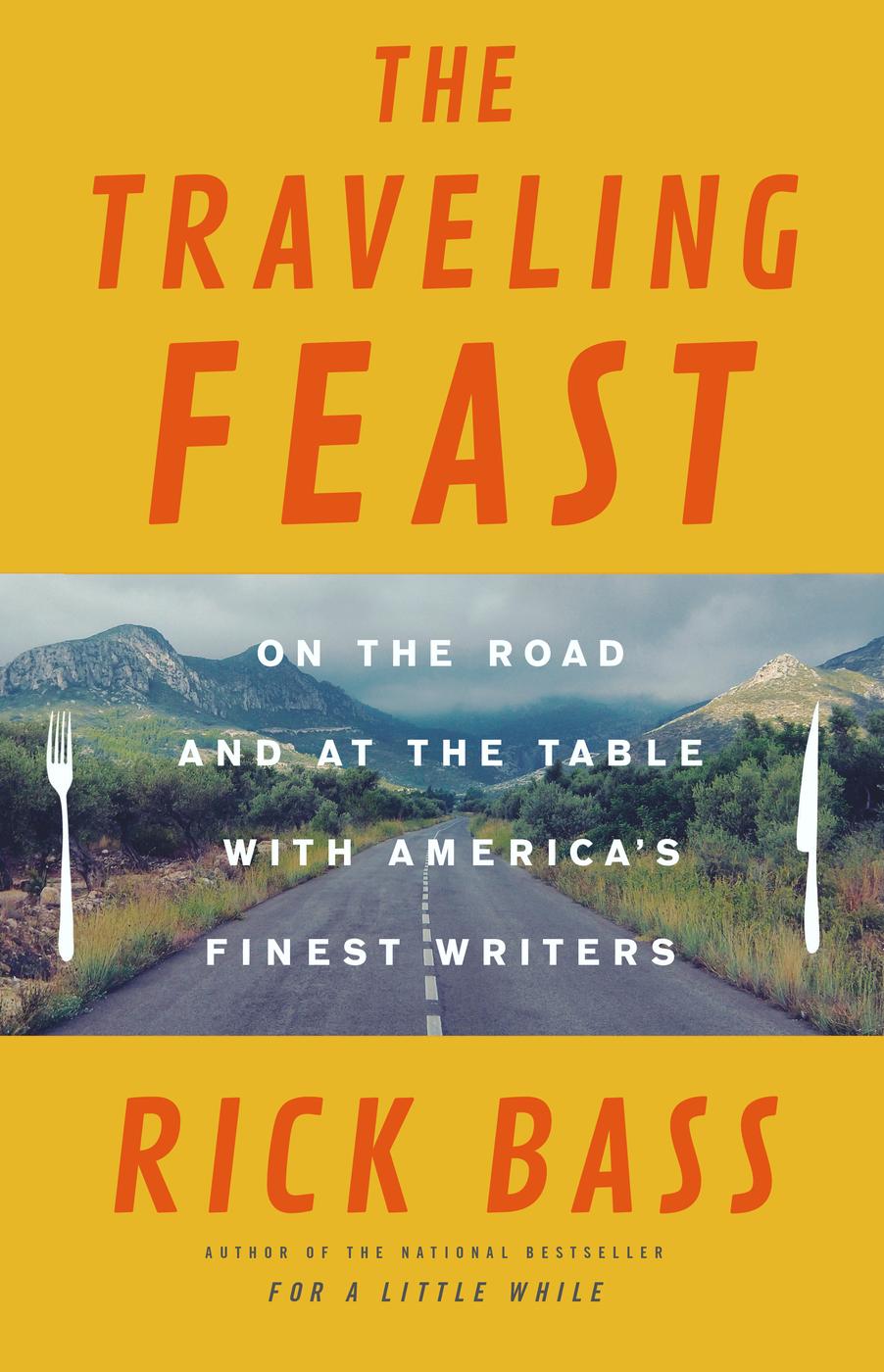Cover design by Allison J. Warner
Cover photograph by Santiago Oujo / EyeEm
Cover copyright 2018 Hachette Book Group
Hachette Book Group supports the right to free expression and the value of copyright. The purpose of copyright is to encourage writers and artists to produce the creative works that enrich our culture.
The scanning, uploading, and distribution of this book without permission is a theft of the authors intellectual property. If you would like permission to use material from the book (other than for review purposes), please contact permissions@hbgusa.com. Thank you for your support of the authors rights.
Little, Brown and Company is a division of Hachette Book Group, Inc. The Little, Brown name and logo are trademarks of Hachette Book Group, Inc.
The publisher is not responsible for websites (or their content) that are not owned by the publisher.
The Hachette Speakers Bureau provides a wide range of authors for speaking events. To find out more, go to hachettespeakersbureau.com or call (866) 376-6591.
Prologue
T he radio operator didnt like me. She worked the switchboard down in town for my shortwave, which was how people got in touch with me back in the late 1980s. There was no electricity up here then, no telephones, no nothing. Friends dialed the dispatchers number, and she rang me up on the radio. She was a severe churchgoing lady, severe even by standards in western Montana.
The radio wasnt like a telephone call. People back in New York, or wherever they were calling from, thought that it was, because they were on a telephone. But out here, on the Canadian border, up in the trees and mountains, it was like a live talk show. Everybody in western Montana could hear our conversation, which was broadcast over the radio, and during the short winter days, the long winter nights, when entertainment was scarce, that was what a good number of the folks up here ended up doingmonitoring one anothers shortwave calls to hear all the dirt.
The radio dispatcher didnt like me because my callers were often drunk and used coarse language. I was too shy to tell them, my callers, that they were on the air, and besides, with many of my friendsso wild!this would only have inspired them to further profanity. I merely quivered and winced, imagining the church-lady operator listening, imagining my neighbors listening, imagining, in bouts of winter paranoia, the FBI and the FCC listening, taking notes.
Why my friends told me these things in the first place, I didnt know. I hadnt asked to hear themneither had the church ladybut since I was too shy to tell them Please, stop it, the operator and I listened to the editor Gordon Lish use the f-word like water. Bass, he said, calling to tell me about some new development, as enthusiastic as a twister, youve got to read this, its fanfuckingtastic, youve fucking got to fucking read this fucking book.
The church lady didnt even clear her throat. I trembled at some of the things she had to listen to, and wouldnt have blamed her for holding them against me, but I never dreamed of saying anything to any of the callers. All my life Id been shy, and I wasnt about to change that.
Before my move to the remote Yaak Valley in Montana, I had lived in Mississippi. One summer there I attempted to become Eudora Weltys yard man. It was one of the many summers when I was writing, but had not published anything, and did not believe I ever would. I am sad to say this was not when I was a teenager; this was when I was a grown man: twenty-four, maybe twenty-five years old.
I just wanted to be close to her, was the thing. It seemed like the perfect world. I could be close to her, but I wouldnt have to say anything. I could just stagger around in the Jackson heat, shirtless, in her front yard, and perspire: trimming the hedges, mowing the lawn, sweeping the sidewalks and the driveway like some sort of yard savage. Standing guard is what I imagined it would feel like, protecting her, but more important, just being around her.
Why? I hesitate even to try to explain what the work of Eudora Welty, the best American writer never to win the Nobel Prize, has meant to me. Unlike Faulkner, her Mississippi neighbor, the flamboyant curmudgeon and drinker who wrote overbrimming, high-octane prose (Barry Hannah once called him, semi-endearingly, Old Blabbermouth) and who traveled the world, Miss Welty stayed for ninety-two years in her Jackson home on Pinehurst Streetthe same house in which she had been bornwriting, writing. I am a writer who came from a sheltered life, she says in her memoir, One Writers Beginnings. A sheltered life can be a daring life as well. For all serious daring starts from within.
It was the music of her prose that moved me: the rhythm, the cadence, the lyricism. Two of what I consider the greatest similes ever written both belong to her: her description of a bird dogs pink panting tongue being the color of a faded rose, and the sound of cicadas in the early evening being like that of grain being poured into a metal bucket. In the former, I love how she compares the monstroustheres nothing nastier than a bird dogs slobbering old tongueto the sublime, the archetypal poetry of the rose. And the latter works its way far down into the subconscious, because even though the two sounds are not alike, both are elemental components of the Southern experience, and hearing each stirs a similar home-register in the brain.
My admiration extended beyond her writing. I had seen Miss Welty buying a frozen pizza at the Jitney Jungle one time and had even been impressed by the way she looked at each one before selecting the one she wanted, rather than taking the first one she saw. I figured I could learn things just by being bold enough to breathe some of the same air, but without ever mentioning to her that I was a writer; or rather, that I was trying to be one.
Perhaps I should not be telling this.
I bought a lawn mower and typed up a prospectus, listing my services: mowing, trimming, sweeping, etc. To increase my chances of employment, I gave price quotes that were crippling to any would-be competitorstwo dollars per lawn, no matter the size. I went from door to door, putting these notices in the mailboxes, in the door slots. I would only embarrass myself further if I tried to tell you what it felt like, standing on Miss Weltys porch with my little notice.
I didnt gain Miss Weltys employ. The closest neighbor who hired me was a man who lived two houses down, but that was all rightit was closer than Id ever been before, and I could breathe the air as I mowed laps around that delighted mans yard; that man who, for two dollars a week, was sure he was getting the better end of the bargain. But I knew better. I never complained about the stupefying heat, or about the humidity, and I kept a close eye on the yard two houses down the street. I was getting to breathe that air.
I havent mentioned I had a real job back then, as a petroleum geologist, an executives job with an office and a telephone and all that nonsense. Often people from the office would drive by in their rich cars and see me out there, laboring. It didnt bother me at all, though my savage yard work in that neighborhood was the beginning of my downfall in that office, with those office people and their rich cars, which is another story, and one I bring up only to illustrate my point, that shy men, or shy women, cannot live among people, nor should they try.













